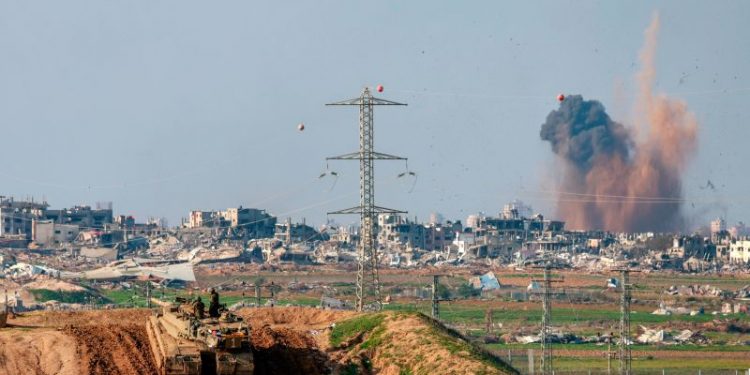Israeli Soldiers: Navigating the Dichotomy of Political Views and the Realities of War
The experience of being an Israeli soldier is undoubtedly one filled with complexity and challenges. One such challenge that soldiers face is the internal struggle to reconcile their political views with the stark realities of war. In a country like Israel, where politics and military conflicts are deeply intertwined, this societal dilemma becomes even more profound.
Israel, a nation continuously grappling with regional conflicts, has a diverse population with a wide range of political opinions. Like any other society, soldiers come from various backgrounds and hold differing political beliefs. However, when these soldiers enter active service, they find themselves torn between their personal ideologies and the operational necessities of the military.
The Israeli Defense Forces (IDF) is often regarded as an embodiment of the nation’s security and sovereignty. Soldiers are entrusted with the responsibility of safeguarding Israel against external threats. This duty requires them to execute policies dictated by the Israeli government, which may not always align with their own political beliefs. This dissonance challenges soldiers emotionally and intellectually, forcing them to confront the paradox between personal convictions and the larger mission they serve.
For some soldiers, the internal struggle begins well before their service. Those who maintain strong political convictions may question their willingness to serve a government whose policies they vehemently disagree with. These individuals face a moral dilemma, trying to reconcile their commitment to their country with their personal values. For them, military service can become a test of integrity, as they navigate the thin line between loyalty to nation and fidelity to their own principles.
Once in active service, Israeli soldiers often find themselves in situations that further highlight the conflict between their political views and the realities of war. While Israel endeavors to adhere to international humanitarian laws and maintain ethical conduct in warfare, the exigencies of combat often make it difficult to maintain a clear distinction between combatants and civilians. The fog of war can blur the lines, exacerbating the strain on soldiers’ political consciousness.
Furthermore, incidents involving Palestinian civilians during military operations can exacerbate the soldiers’ struggle. These experiences force soldiers to confront the human costs of the ongoing conflict and provoke questions about the efficacy and morality of the actions they have been involved in. Witnessing the devastating impact of war on innocent lives, soldiers may find themselves grappling with cognitive dissonance, questioning the validity of their own political beliefs in the face of such destruction.
The Israeli military recognizes the challenges faced by soldiers in reconciling their political views with the realities of war. Efforts are made to provide soldiers with psychological support and spaces for open dialogue, allowing them to process their experiences and engage in critical reflection. Educating soldiers about the complex political landscape of the region also helps broaden their understanding and encourages empathy towards diverse perspectives.
Ultimately, the struggle to square political views with the realities of war is not unique to Israeli soldiers alone. It is an inherent part of the human condition, affecting soldiers in conflict zones worldwide. However, in a nation as politically charged as Israel, these internal tensions are particularly pronounced. The capacity for soldiers to navigate this dichotomy rests on their resilience, emotional intelligence, and ability to critically engage with their experiences.
As the conflict in the region persists, it becomes increasingly important for Israeli society to recognize and address the psychological burden soldiers bear. Encouraging open discussions on the complexities of political views, providing mental health support, and promoting empathy could help ease the internal struggles faced by soldiers in their journey to reconcile their political beliefs with the harsh realities of war.
In conclusion, the dichotomy between political views and the realities of war presents a significant challenge for Israeli soldiers. The burden of navigating this internal struggle is one that soldiers face throughout their military service. As a society, fostering a climate of understanding, empathy, and support can aid soldiers in their quest to reconcile the personal and the national, ultimately leading to a more resilient and compassionate military force.
















